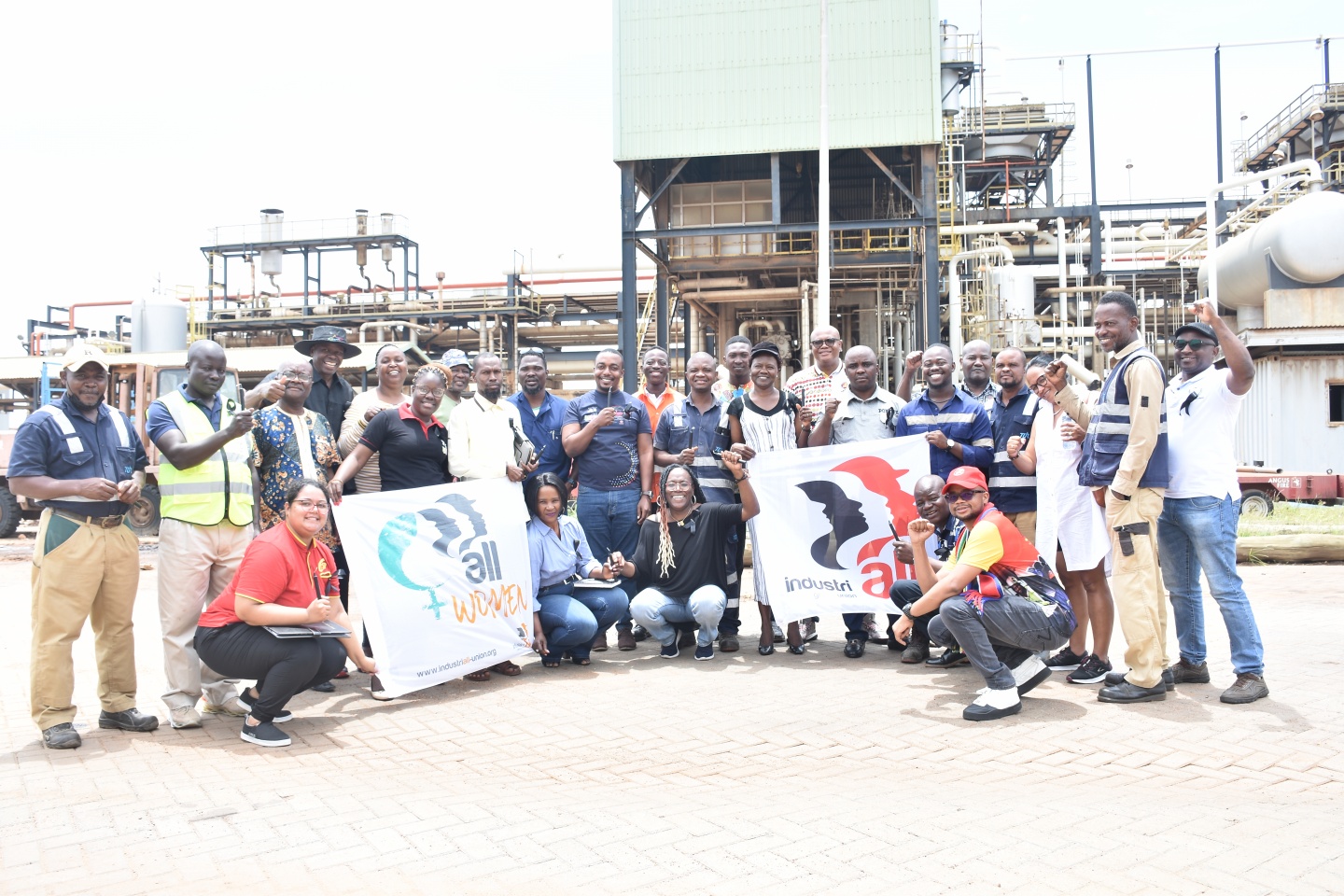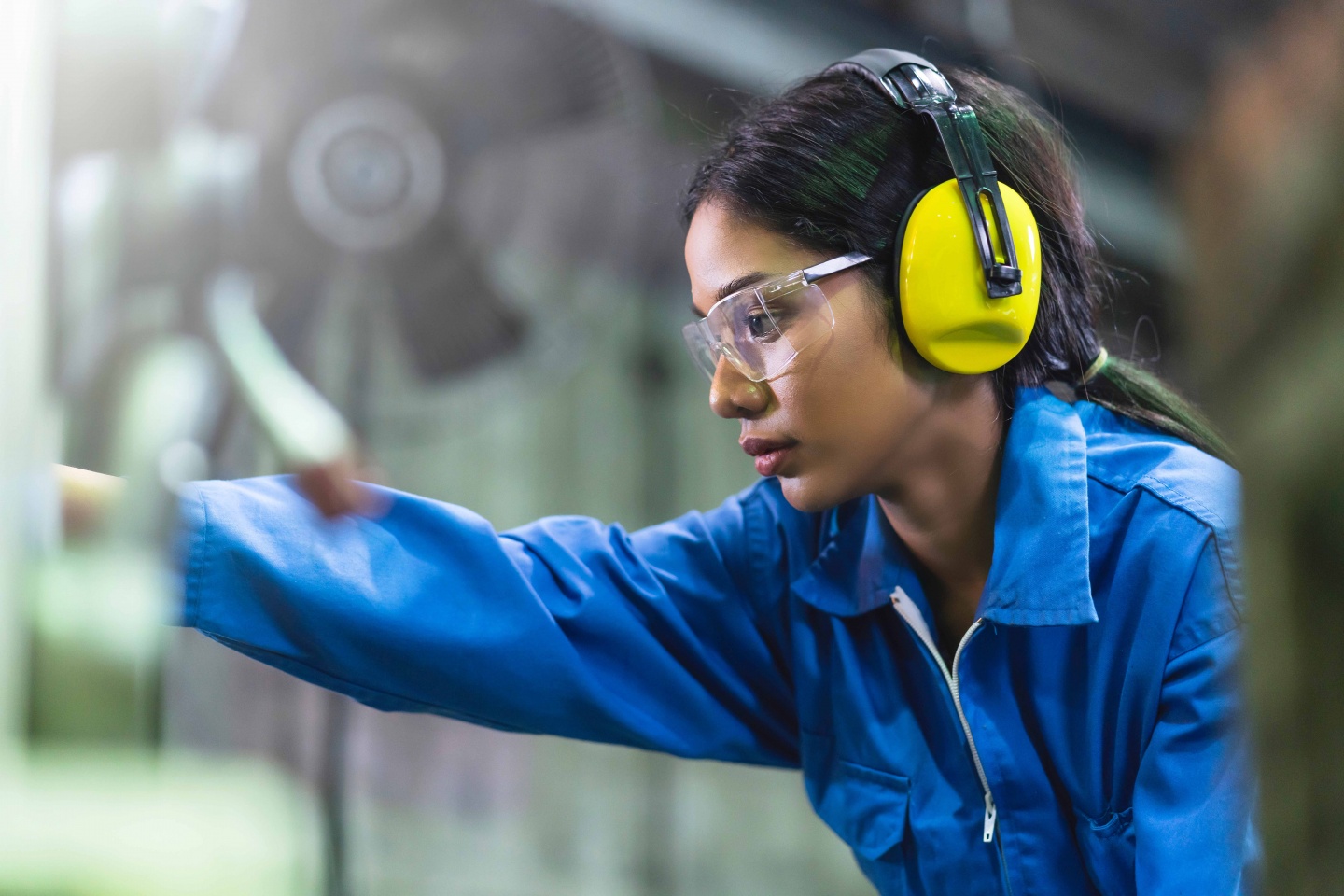Ayodeji Adeyemo the National President of CCESSA addresses construction workers on 28 April
Ayodeji Adeyemo the National President of CCESSA addresses construction workers on 28 April
The Timber and Woodworkers Union (TWU), BWI affiliate in Ghana held a social dialogue meeting on occupational health and safety (OHS) policies in Kumasi on April 28th, 2023. The meeting brought together representatives from the TWU, government officials, employers, and workers to discuss ways to improve OHS policies and practices in the Wood and Forestry Sector.
The National Union of Building and Wood Workers (SNTBB) of Burkina Faso celebrated the International Commemorative Workers Day (#JICT2023) by a national seminar held in Tenkodogo on April 29, 2023 under the theme: “Role of the Union in ILO C167 ratification; Role of OST in enterprises for better worker health”
#MakeItHappen Health and safety is a non-negotiable! Unions in India conduct awareness meetings in Delhi (MAMU), Punjab (BMS) and Himachal Pradesh (AHPWDIPHCWU)
The National Syndicate of Construction Workers and BPT (SNTC/BTP), an affiliated with the IBB in Senegal, commemorated the International Workers Commemoration Day 2023 with a workplace campaign in Eiffage Senegal and calling on employers to act for the implementation of SST as what a fundamental workers right.
The Indian National Cement Workers Federation convened health and safety workshop at selected cement plants. Also, KSCWCU conducted health and safety meeting to mark the day.
African unions commemorate International Workers’ Memorial Day
2 May, 2023
To commemorate International Workers’ Memorial Day a group of shop stewards from different trade unions in Sub-Saharan Africa came together, in Ghana, to visit and learn about adherence to occupational health and safety standards at state-owned Tema oil refinery and Trafigura’s Tema multiproduct terminal known as Blue Ocean. As symbols of remembrance the workers and delegation wore black ribbons and carried black candles.
Kofi Poku, the union branch chairperson at the terminal said,
“Blue Ocean is known to be conscious on health and safety issues and workers make significant contributions towards creating a safe working environment. The visit by IndustriALL is commendable and highlights the commitment of organised labour at global level to ensure health and safety at work.”
A meeting preceding the visit discussed country reports which focused on: accident reporting systems in Togo, campaigns for health and safety laws in mining that protected workers’ rights in South Africa, and campaigns against precarious work as workers, in Ghana, Nigeria, Kenya, and Uganda, with short contracts faced more health and safety risks than those on permanent contracts.
The meeting also heard that Madagascar’s garment and textile factories’ contract workers faced risks that were worsened by sexual harassment which was targeted at young women workers. The meeting discussed the positive impact of the Bangladesh Accord on Sub-Saharan Africa especially the involvement of brands through global framework agreements after the Rana Plaza disaster which happened a decade ago.
In Mauritius, unions were campaigning for proposed amendments to Articles 7, 10, 11, and 22, to the Rotterdam Convention, a global treaty to facilitate informed decision making by countries to manage chemicals in international trade and exchange information on hazardous chemicals and their potential risks. The campaign by the CTSP received government endorsement, and Mauritius’ position will be presented at the 11th conference of parties to the Rotterdam Convention that is currently taking place in Geneva, Switzerland.
Glen Mpufane, Industrial director for mining and lead on health and safety, said:
“Workers have made immense sacrifices on health and safety and as trade union activists we are in solidarity on their demands for safer workplaces. It is a victory for workers that health and safety is now one of the fundamental rights at work and this is why we must have knowledge on international labour conventions and recommendations. However, as we remember the injured and dead, we must adapt our programmes to include human rights’ due diligence and demand responsible business conduct from employers.”
Glen added that workers must remain vigilant on identifying hazards and risks at the workplaces including wearing of appropriate personal protective equipment in hazardous areas and exercising the right to refuse unfair and unsafework.
The participants are part of the Sub-Saharan Africa occupational health and safety committee whose members are drawn from the chemical, garment and textile, mining, oil and gas, and other industrial sectors. This visit was organized by IndustriALL affiliate, the Ghana Transport Petroleum and Chemical Workers Union which organizes workers at the Tema Oil Refinery and Blue Ocean.
https://www.industriall-union.org/african-unions-commemorate-international-workers-memorial-day

28 April, 2023 Gender based division of labour, sexual biological differences, employment patterns, social roles and social structures mean that women and men are exposed to different risks at work, and also exposed in different ways. These differences need to be identified and acknowledged, OHS policies should be gender-responsive to ensure workplaces that are safe for all workers.
The TUC’s guide for trade union activists on Gender in occupational safety and health illustrates that occupational health and safety often treats men and women as if they were the same. Less attention is given to the health and safety needs of women.
Traditional emphasis of health and safety, and related research, have been on risk prevention in visibly dangerous work largely carried out by men in sectors like construction and mining, where inadequate risk control can lead to fatalities. As a result, women’s occupational injuries and illnesses, like work-related stress or musculoskeletal disorders have been largely ignored, under-diagnosed, under-reported and under-compensated.
Across the world, work equipment, tools and personal protective equipment (PPE), have been traditionally designed for the male body size and shape. Moreover, as explained by the ILO, the design of most PPE is based on the sizes and characteristics of male populations from certain countries in Europe, Canada and the United States. As a result, not only women, but also many men experience problems finding suitable and comfortable PPE because they do not conform to this standard male worker model.
Gender inequality both inside and outside the workplace can affect women’s occupational safety and health and there are important links between wider discrimination issues and health. According to the ILO, in general, women are more exposed than men to psychosocial risks that can cause work-related stress, burnout, violence, discrimination and harassment.
The extra responsibilities that women face as paid workers and unpaid carers for their families make that women’s stress levels remain high after work. Not acknowledging gender differences may mean that apparently neutral policies impact differently on women and men and reinforce existing inequalities. OSH is a core aspect of promoting gender equality.
“We need a gender-responsive approach, based on the analysis of sex and gender disaggregated data, that acknowledges and makes visible differences between male and female workers, identifies their differing risks and propose control measures so that effective solutions are provided for everyone,”
says Glen Mpufane, IndustriALL OSH director.
ILO Convention 190 on violence and harassment in the world of work is a, calling on employers to conduct gender responsive risk assessment, taking into account gender stereotypes, multiple and intersecting forms of discrimination, and unequal gender-based power relations.
Consultation with women workers and the women health and safety representatives in health and safety committees are key for the development of gender responsive OHS.
Guidelines on out gender-responsive risk assessment on violence and harassment
https://www.industriall-union.org/safety-for-all-the-need-for-gender-responsive-ohs